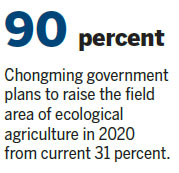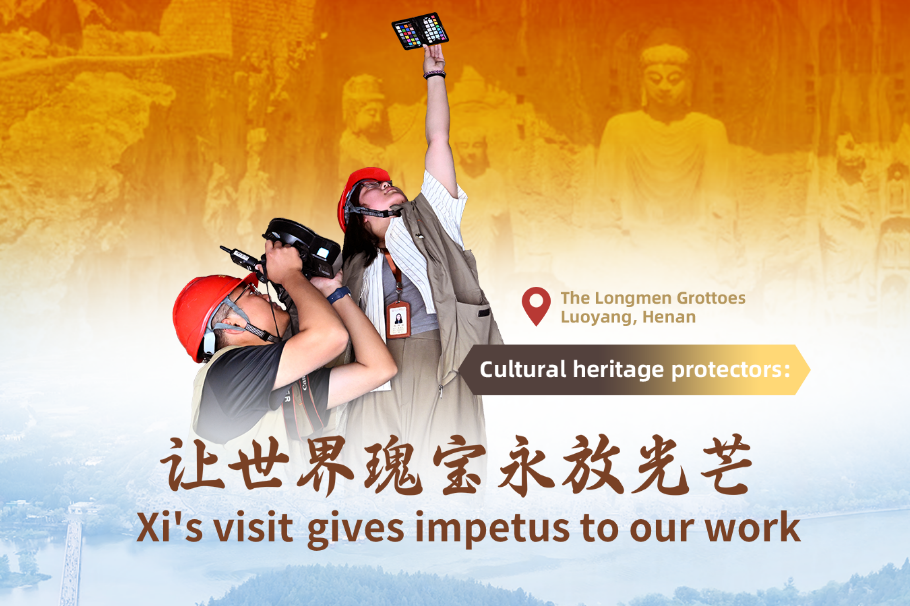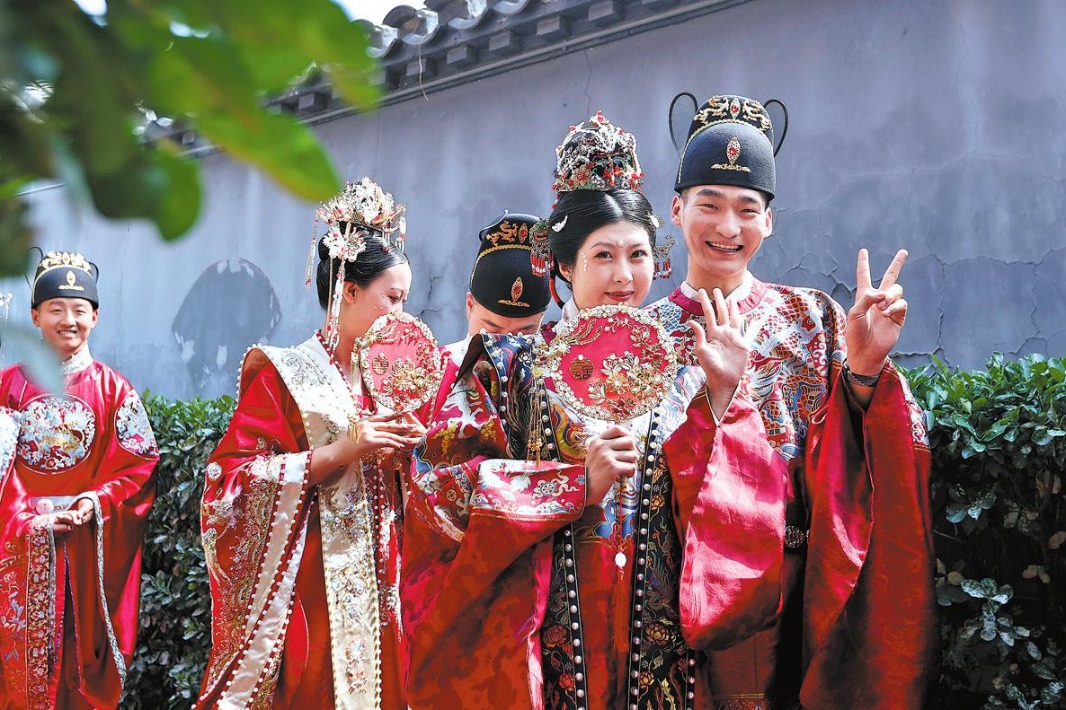How green is my island

Big plans are in store for a getaway eco-retreat at the mouth of Yangtze
It is part of Shanghai municipality and only about 40 kilometers from downtown as the crow flies, but Chongming district is so distinctly different that it could just as well be at the other end of the country.
Located at the mouth of the Yangtze River, it consists of three alluvial islands: Chongming, Changxing and Hengsha.
Past the 25-kilometer-long Shanghai Yangtze River Tunnel and Bridge that connects both regions, visitors to Chongming Island - the country's third-largest after Taiwan and Hainan - find an idyllic space where nature reigns.
Instead of the shiny skyscrapers, glitzy shopping malls and high-rise apartments that are ubiquitous in Shanghai, the island has lush farmlands, forests, wetlands, lakes and waterways.
The region is a popular weekend getaway destination for those living in mainland Shanghai, and the most common activities include cycling, bird watching, strolling through forest parks and visiting its quaint small towns and villages.
For those who go to the island to get away from the hustle and bustle of mainland Shanghai, news of plans for the region to be developed into a "world-class ecological island" by 2040 must be music to the ears.
According to the general schedule of the master plan, made public in July, wetlands will account for 45 percent of the total space on the silkworm-shaped island, up from the present 38 percent.
But what exactly should a world-class, ecologically friendly island look like?
"There is no example in the world for us to learn from but, as I understand it, we will focus on showcasing the uniqueness and progress of Chongming," says Wu Zhaozhong, deputy governor of Chongming district.

The project to develop Chongming Island into an ecological paradise was unveiled in February, and the city government has plowed about 50 billion yuan ($7.6 billion; 6.4 billion euros; £5.7 billion) into the first group of 33 key projects aimed at initially improving the environment and improving infrastructure.
The project is part of Shanghai government plans for the city to become an influential international center in areas such as innovation, science and technology. The Chongming project represents the city's green ambitions.
Before the district government formulated the Chongming master plan, it did extensive research on ecological islands worldwide. It found that most are protected zones.
Chongming Island, on the other hand, is home to about 670,000 people, and therein lies the challenge for the authorities - creating an environment that can fit the requirements of a "world-class ecological island" while ensuring that there are still industries for locals to work in.
Zhang Guokun, director of the Shanghai Municipal Agricultural Commission, suggests that the ecological agriculture industries on the island will be further developed in line with this vision.
"In the future, Chongming will be able to meet the growing demands for high-quality agricultural products from Shanghai residents," Wu says. "This will be the core industry in Chongming."
Agriculture now accounts for just 0.39 percent of the city's GDP. As part of the master plan, the Chongming government plans to raise its field area of ecological agriculture from the current 31 percent to more than 90 percent in 2020. Given that there is limited farmland on the island, the focus would be on quality instead of quantity. Creating the island's own brands is another part of the plan.
The tourism industry will have a role to play in the island's growth as well, Wu says.
"Abandoned homes and old farm cabins have already attracted some artists. In the future, it is possible that farmers' homes will be used to house artists and crafts people."
Gu Huiming, director of the district planning and land bureau, says Chongming's landscape will follow the traditional Chinese style with the abundant waterways on the island as the foundation. The island's small and rustic villages, which are made up of homes featuring traditional East China architecture, will continue to flank the meandering waterways, he says.
"We won't build big buildings and broad roads," he adds. "Instead, we will have more small houses tucked away in the forests and along narrow pathways through the fields.
"If we succeed, Chongming will be a good example of how an ecological island can accommodate a large population. We will become the only place in the world to achieve this."
quyingpu@chinadaily.com.cn
(China Daily Africa Weekly 10/20/2017 page16)
Today's Top News
- EU has much to learn from China-Global South ties
- Xi holds phone conversation with Merz
- Xi stresses high-quality cultural-ethical advancement
- Trump halts Harvard's intl student enrollment
- Xi's visit gives impetus to our work
- Financing support enhanced for micro, small companies






























